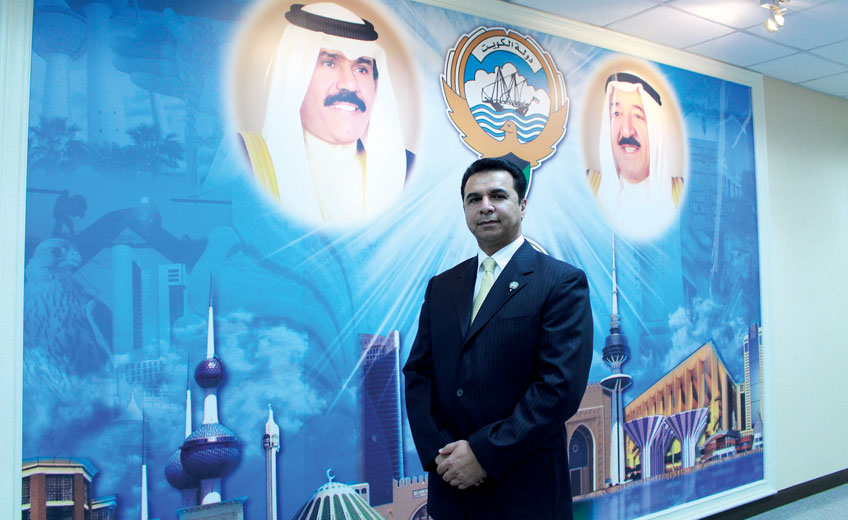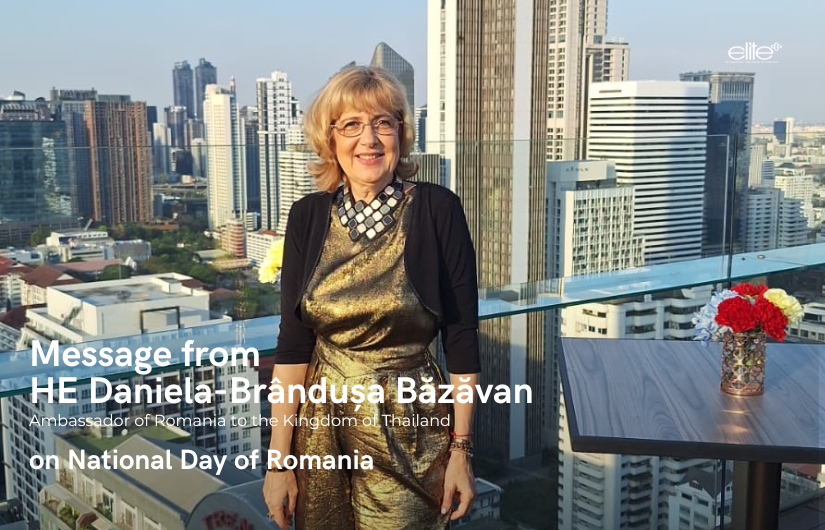A small country on a coast of the Gulf region, Kuwait is one of the world’s most financially powerful nations. Commonly known for wealth generated from oil and gas, the purchasing power of citizens has grown due in large part to industrial development. His Excellency Abdullah Jomaa Abdullah AlSharhan, Kuwaiti ambassador to Thailand, sat down with Elite+ to reveal aspects of the nation and its people rarely considered by outsiders.
- What is the Kuwait government’s policy on foreign relations?
Our policy is governed by a belief in mutual respect, equality and non-interference in the internal affairs of other nations. We prefer quiet diplomacy. When disputes arise, whether or not they involve us, we advocate settling them by peaceful means and in compliance with international laws. At the moment, we have 104 diplomatic missions around the world and much the same number of foreign diplomatic missions in Kuwait.
- Besides the impact as a major producer of oil and gas, what other roles does Kuwait play in the international community?
We are a member of several international organizations involved in important affairs such as economics, security, peace and energy. We have been a member of the United Nations since 1963, and so are a member of the G77. As a proactive member of the Arab League, we promote politics, economy, culture and security in the Arab world. Besides several funding organizations we have joined as a loaner, our own Kuwait Fund for Arab Economic Development, established in 1961, provides financial and technical aid to developing countries around the world. We gain little profit from these long-term loans because we believe it is our responsibility to help people who need help.
And we have earned a reputation at the regional level as a good mediator in resolving disputes. The person taking a lead in this role is His Highness the Emir of Kuwait Sabah Al-Ahmad Al-Jaber Al-Sabah, who had been a minister of foreign affairs for a long time. He is often asked to be a mediator because neighbouring countries trust and respect him.
- How are Kuwait’s relationships with its neighbours? What about Iraq after the Gulf War of 1990?
Maintaining good relations with all of our neighbours is one of our top priorities. And we have closer relationships and contacts with some. For example, Kuwait and the UAE have a very good knowledge and information exchange and a sharing relationship. We watch and learn from each other, like brothers.
From our independence in 1961 until 2004, the leaders of Iraq always sought opportunities to annex Kuwait, claiming a historic right to us. The Gulf War under the lead of Saddam Hussein was the worst of their invasions even though the occupation did not last long as we fought to defend our sovereignty and were well supported by other nations. However, we left that chapter behind and have developed a good diplomatic relationship with them. Kuwait has an embassy in Baghdad as well as consulates general in Basra and Erbil.
- Is national security an issue of concern right now?
No, but Kuwait does and will do whatever it takes to maintain the security and stability of our nation as well as the Gulf region. There are security problems in our region and we have to take precautions. We have to always be ready to defend ourselves. It is like though you are healthy, you still have to take good care of yourself. One of our precautions is our Defense Cooperation Agreement with the United States, which followed their lead in the expulsion of the Iraqi invasion in 1991.
- Kuwait’s income heavily depends on oil and gas which will eventually run out. How is the government securing revenues for generations to come?
We are aware of the issue and have been working on solutions for a long time. In 1976 we founded the Future Generations Fund (FGF) to save money for our children. At the moment, 25% of all state revenues are transferred to the fund every year, all of which is invested abroad. The capital alone has reached billions. In fact, we are the Arab world’s largest foreign investor. We have investments around the world and always increase them.
But securing our money is one thing; concern about non-replenishable resources is another. I believe it is the [task of] teamwork of all nations, producers and consumers to find solutions whose procedures will have our support.
- What sectors are open to foreign investment in Kuwait?
There are several sectors we have been promoting and trying to attract foreign investment in. The key ones are banking and finance as we are trying to become a hub. We would also like to draw more investment in infrastructure like water, wastewater treatment, electricity and communications. Investment in hospitals and pharmaceuticals is also favoured. Another sector is tourism. Kuwait has nine islands, five of which are being researched if they can be rehabilitated and turned into tourist destinations. Kuwaitis love shopping malls and we want more of them. We have The Avenues, the Middle East’s biggest mall at the moment. There are 15 Starbucks in it alone.
- Why is Kuwait attractive for foreign investors?
We present several advantages. First, tax incentives and a certain level of loosened ownership restrictions. We have a flat rate for cooperate income tax with an exemption for up to 10 years and allow full foreign ownership in many key non-energy sectors. Second, we have good financial management and a solid banking system. The cost of energy is low. The infrastructure is of high quality. And the labour force, usually provided by foreign workers, is inexpensive.




























































































































































































































































































































































































































































































































































































































































































































































































































































































































